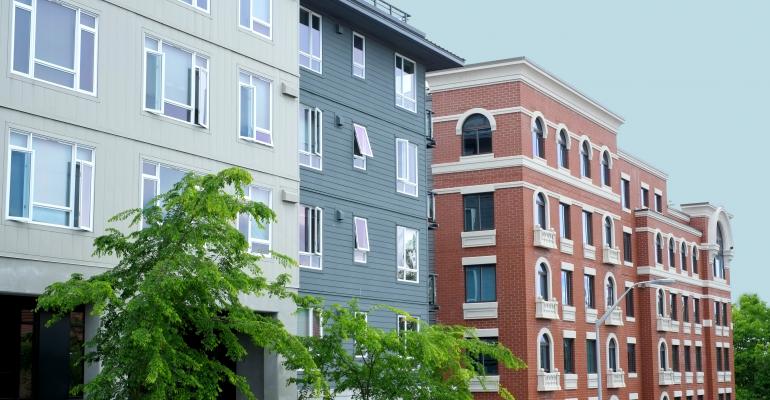ArborCrowd isn’t a fintech newbie trying to find its way in the world of real estate crowdfunding. Rather, it’s a crowdfunding member of the Arbor family of companies, which includes Arbor Realty Trust, a publicly-traded Uniondale, N.Y.-based REIT that specializes in direct lending, Arbor Commercial Mortgage and AMAC.
Founded in 2016, ArborCrowd pursues multifamily workforce housing investments across the U.S., with purchase prices ranging from $25 million to $80 million. So far, ArborCrowd has executed six deals, raising over $18 million in equity for assets valued at roughly $200 million on behalf of high-net-worth (HNW) investors and family offices. Arbor Realty Trust brings deals and sponsors to the table, with help from Arbor Commercial Mortgage and AMAC.
ArborCrowd targets IRRs from 12 percent to 15 percent in top-tier markets and IRRs in the mid-teens or low 20s in secondary and tertiary markets, according to Adam Kaufman, co-founder and managing director of the online crowdfunding platform.
Kaufman says ArborCrowd seeks to democratize real estate investing so that not just ultra-HNW individuals and institutional investors are able to diversify their portfolios with institutional-quality assets in the multifamily sector. To participate in a deal, an ArborCrowd investor must pony up at least $25,000.
“This is about passively investing alongside really experienced real estate professionals,” Kaufman says.
In a Q&A with NREI, Kaufman discusses how ArborCrowd works with HNW investors and family offices, why the platform concentrates on multifamily investments and how the real estate investment market looks from his perspective.
This Q&A has been edited for length, style and clarity.
NREI: What does your platform offer HNW investors and family offices?
Adam Kaufman: A lot of people look at the platform as a way to diversify their portfolio through multifamily [investment]—which has commonly been one of the most resilient asset classes you can invest in—and move away from other investment types, like stocks and bonds. They’re looking at multifamily for the first time with the ability to invest and to really have the expertise behind the investment.
It’s important when you’re looking at any investment platform that you have the transparency to make an investment decision. What we do… is we put together significant business plans and offering overviews and private placement memorandums that focus on individual deals—we do one deal at a time—for a high-net-worth individual or a family office to really make that decision on their own.
NREI: What was the reasoning behind focusing solely on multifamily workforce housing?
Adam Kaufman: We look at multifamily workforce housing as the bread and butter of the market. With its resiliency over the years and its ability to survive the market cycles, we look at it as the most stable asset class. When you’re asking investors who do not have as much experience in real estate to come in and invest, getting them high-risk, high-return transactions is not what we’re trying to do. We’re trying to create a way for people to build their portfolio in a steady and stable manner, and we think that multifamily and workforce housing offer that opportunity.
Workforce housing is not sexy. You’re not investing in an office building in Manhattan; that’s not what workforce housing is. You have to understand that when you’re going into it. If you understand that, you can understand how you’re taking less of a risk throughout an up-and-down market cycle in the future, and then you can feel comfortable diversifying your portfolio in that way.
NREI: How is the current environment for interest rates and cap rates affecting investment in multifamily?
Adam Kaufman: People are overpaying right now. People are taking risks; it’s not necessarily a good buyer’s market. The people who have less experience and the people who invest with people who have less experience are ultimately going to have a hard time when the market goes belly up, when we hit a down cycle.
NREI: How should HNW investors and family offices be approaching commercial real estate investment these days?
Adam Kaufman: I think people need to focus on the quality of the sponsorship and look at the numbers realistically. Typically, the private equity crowdfunding space is looked at from an IRR perspective, with people posting crazy IRRs that they’re marketing to the public that are really aggressive, in our opinion. You need to look at the quality of the sponsorship and the business plan involved, and really think, “Is it realistic? Is it comfortable, where I feel that it’s going to provide me with stable income?” That really can be told by the quality of the sponsor and their track record of surviving the market cycles in the past, as well as their expertise.

